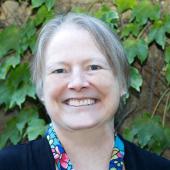
Researching Impoverished Ancestors in North America
Many of our ancestors came from humble beginnings, faced periods of economic hardship, or spent most of their lives in poverty. Due to their socio-economic status, they may not appear in typical records such as deed transactions, probate records, or tax lists. There are, however, specialized records and research strategies to assist in tracing your economically disenfranchised ancestors. In this three-session seminar, experts Lindsay Fulton and Ann G. Lawthers will discuss the welfare systems in North America from colonial times through the early 20th century, demonstrate how to navigate records and collections, and provide practical research strategies for finding your impoverished ancestors.
June 14
Class 1: A Community Responsibility: Taking Care of the Poor
Presented by Ann G. Lawthers
Our colonial ancestors considered it their duty to take care of their less fortunate neighbors. Attitudes toward poverty and misfortune were shaped by English laws and customs and carried to North America. In this session, we will discuss how colonial communities adapted care giving systems to suit their circumstances and what records may have the name of your poor ancestor.
June 21
Class 2: Cries for Reform: Quincy and Yates Reports
Presented by Ann G. Lawthers
This session examines the changes in attitudes and systems for giving care from the late 18th century until about 1850, including the growth of institutions, such as the poorhouse and county farm, as well as private charities. After an overview of historical context, including the shift in funding to greater federal role in financing, this session identifies the new types of delivery systems and the associated records and where to find them for your poor ancestor.
June 28
Class 3: Growth of Organized Settings: Systems of Care from 1850 forward
Presented by Lindsay Fulton
Orphan trains sprang up in response to large numbers of orphaned children living in the streets of major cities. Large institutions such as orphanages gained prominence as did institutions for the mentally ill. Learn about forces influencing these changes and influencing the development of the care delivery systems. And of course, what records were generated and where to find them for your poor ancestor.


